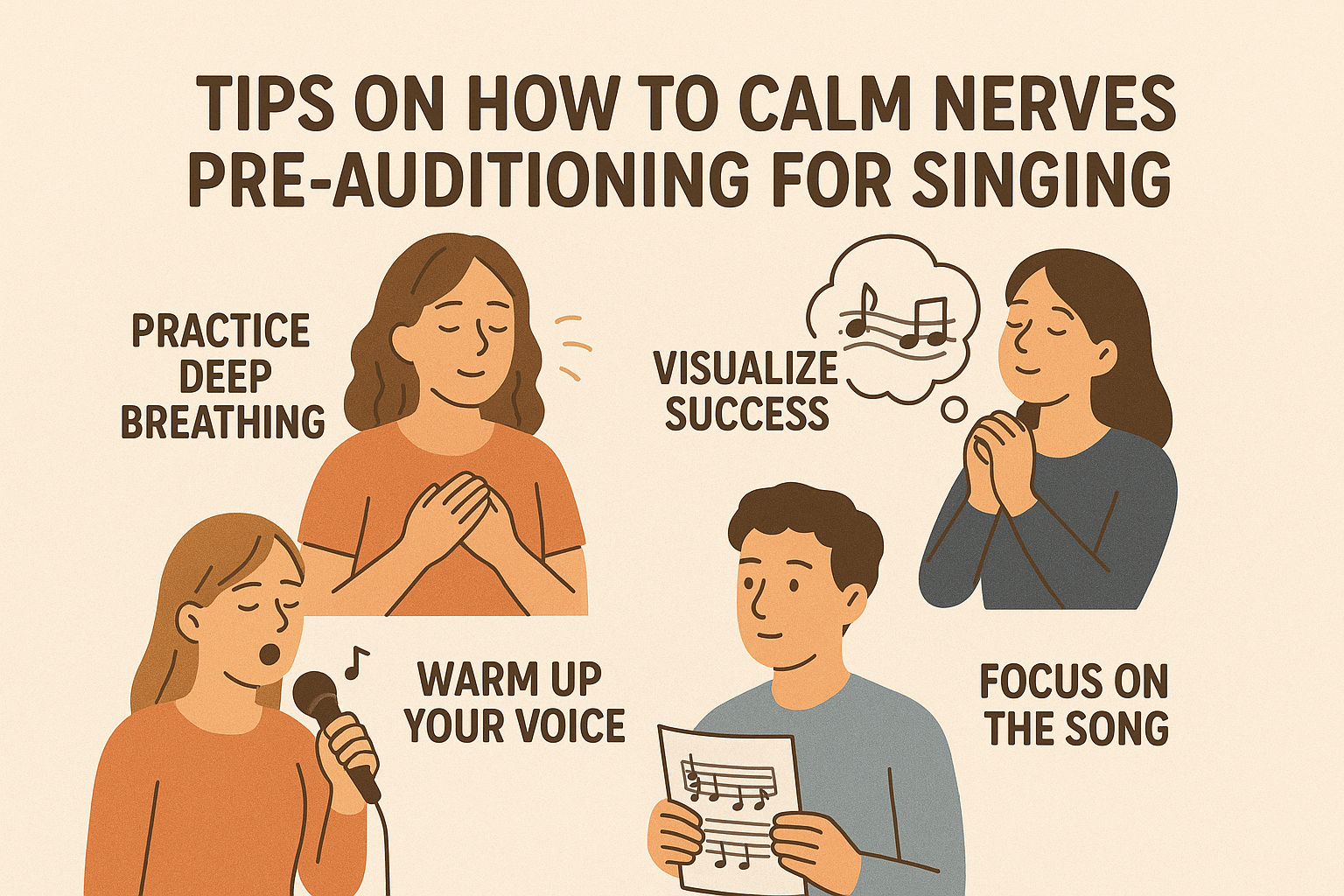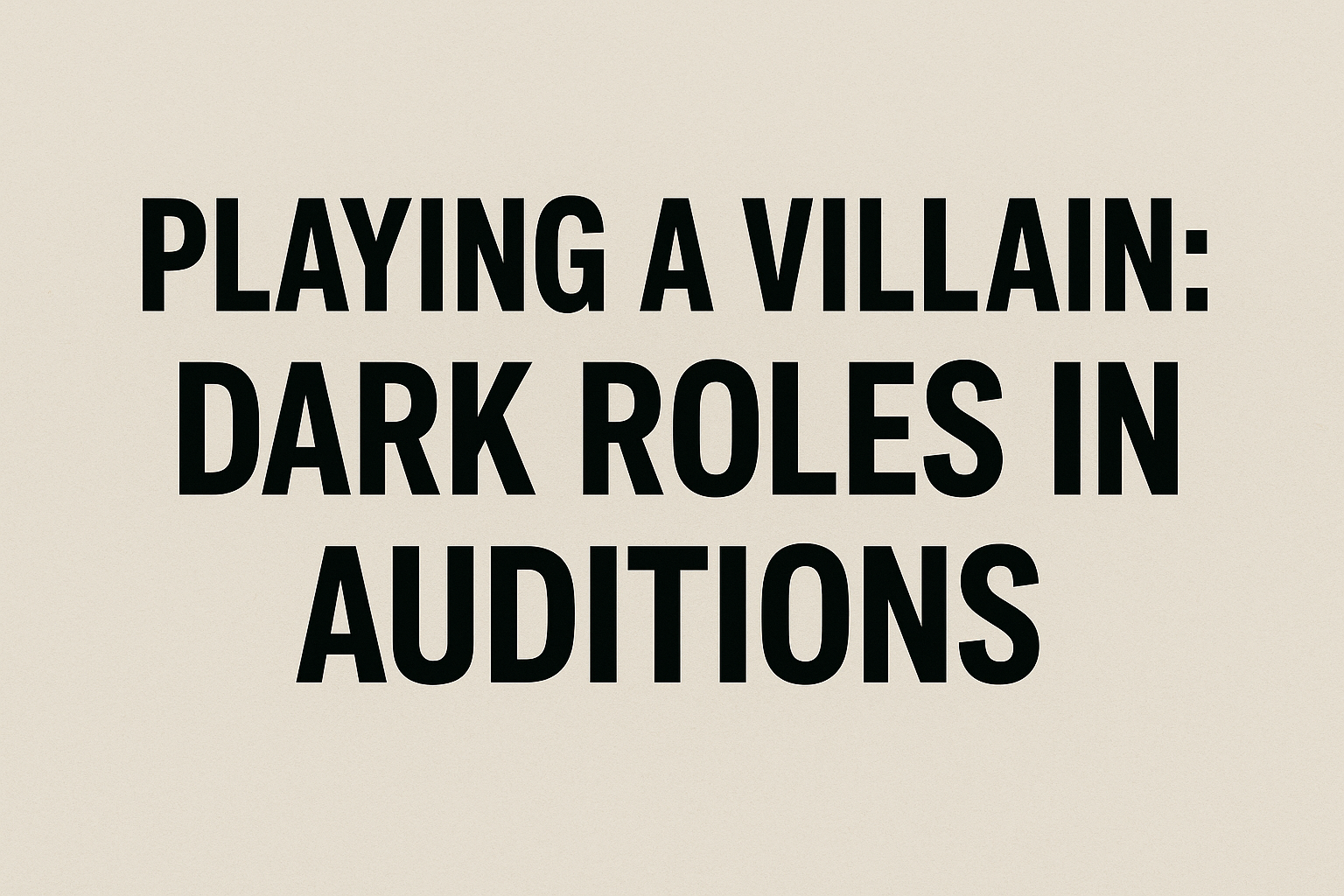
Auditions are stressful even for veterans. The stress of impressing judges, nailing every note, and creating a lasting impression can raise anxiety levels. But here’s reality: nervousness is normal, and it doesn’t reflect lack of preparation. Instead, tapping into that nervous energy actually makes your performance better — if you learn how to tap into it.
Here are 21 tips that have been tested to help settle your nerves before singing audition so that you can go in confidently and perform with heart.
1. Prepare Thoroughly
There’s no substitute for preparation. Familiarize yourself with your song to the core — lyrics, phrasing, emotion, and everything. The more secure you feel about your material, the less space anxiety can occupy.
2. Warm Up Your Voice
A well-warmed voice reduces vocal strain and boosts your confidence. Do gentle scales, humming, lip trills, and vowel exercises at least 30 minutes before your audition.
3. Practice Performing
Don’t just practice singing — practice performing. Stand in front of a mirror or gather a small audience of friends and family to simulate audition conditions.
4. Use Breathing Techniques
Regulated breathing relaxes your body and mind. Practice box breathing: breathe in for 4 seconds, hold for 4, breathe out for 4, hold for 4. Continue until heart rate decreases.
5. Imagine Success
Close your eyes and imagine acing the audition — strong posture, silky voice, beaming judges. Mental rehearsal is as strong as physical preparation.
6. Steer Clear of Caffeine
Caffeine increases anxiety, heart rate, and throat dryness. Drink water or herbal tea such as chamomile to remain calm and hydrated.
7. Stay Hydrated
Stay hydrated to keep your vocal cords in good health and avoid cracking. Drink warm water throughout the day — never ice-cold, as that makes your throat tighten.
8. Arrive Early
Take a moment to acclimatize to the room, adjust to the acoustics, and breathe. Hurrying just adds tension and disrupts your mental cadence.
9. Dress for Comfort
Dress in something that makes you confident but won’t impede your mobility or respiration. Comfort = confidence.
10. Keep Pre-Concert Chit-Chat to a Minimum
Don’t use up all your vocal energy beforehand. Save your energy and vocal reserves for your performance proper. Little chit-chat is fine — just don’t push yourself.
11. Play Music You Enjoy
Hearing music that puts you in a good mood can change your attitude and calm your mind. Choose something that stimulates but doesn’t intimidate.
12. Perform Gentle Physical Warm-ups
Discharge nervous energy by stretching or performing light cardio — such as walking or shaking out your muscles. Exercise tames adrenaline.
13. Practice Positive Self-Talk
Replace thoughts like “I’m going to mess up” with “I’ve got this” or “I’ve prepared and I’m ready.” Affirmations retrain your brain to support you.
14. Avoid Comparing Yourself
Everyone’s on their own journey. Comparison steals joy and focus. Concentrate on your unique sound, story, and strengths.
15. Create a Pre-Audition Routine
Develop a ritual that calms you — whether it’s deep breathing, a vocal warm-up, or a quick pep talk in the mirror. Routines reduce uncertainty.
16. Connect With Other Singers
Chatting with fellow auditioners can normalize your nerves and offer encouragement. You’re all in this together.
17. Use Aromatherapy
Scents like lavender, peppermint, or eucalyptus can have calming effects. A few drops on your wrist or in a diffuser can ease tension naturally.
18. Accept the Nerves
Don’t struggle with your nervousness — accept it. Tell yourself: “This just means I care.” Nervous energy, when accepted, can fuel your performance.
19. Focus on the Story
Rather than getting caught up in technique or impressing the panel, tell the story of your song. Concentrate on the emotion and message — you’ll connect with your audience more and forget your nerves.
20. Have a Backup Plan
If you mess up a lyric or miss a note, have a mental plan: improvise beautifully, remain in character, and keep going. Auditions are all about potential, not perfection.
21. Praise the Bravery
Win or lose, you were there — and that’s big. Auditioning takes courage. Give yourself credit for your bravery and development, no matter what.
Auditions can create a whirlwind of anxiety, but you don’t have to let those nerves overwhelm you. With prep, shifts in attitude, and some relaxation techniques, you can stride into the room your best, most confident self.
Keep in mind: you have a one-of-a-kind voice, and no one else brings just exactly what you bring to the table. If it’s your first audition or your fiftieth, you have something to share.
So breathe deep, trust your prep, and go shine.
Acting may be an art, but in the world of professional performance, it begins long before the cameras roll or the stage lights shine. It begins with the audition — the often nerve-wracking, unpredictable process that determines whether an actor even gets the chance to perform. For aspiring actors, understanding the relationship between auditioning and acting is not just important — it's essential. One feeds into the other, and together, they shape an actor’s growth, resilience, and ultimate success.
When it comes to acting, playing a villain is considered a challenge and a golden chance. Villains are multilayered, multi-dimensional, and probably the most remembered characters in a narrative. Be it old Bollywood films such as Gabbar Singh from Sholay or OTT villains such as Guruji from Sacred Games, dark roles determine an actor's fate. But auditioning for a villain is an altogether different. It needs a firm grasp of psychology, body language, and emotional regulation. If you're a newbie or a seasoned actor wanting to master your craft, this blog will walk you through all that you need to know on how to audition for villainous roles.
In the high-stakes, emotionally demanding world of acting, rejection is frequent, uncertainty is constant, and comparison can feel unavoidable. The entertainment industry is as competitive as it gets—and in such an environment, your mindset can make or break your journey. While talent, networking, and luck all play their part, there's one internal tool that can drastically shift your trajectory: a growth mindset.
There is a moment every actor fears: the casting director places a script in your hands you've never laid eyes on before and says, "Take a minute, and when you're ready, we'll begin. Welcome to the cold read — perhaps the most unpredictable, yet vital portion of an actor's career. Whether you're auditioning for theater, television, or voiceover, cold reading is the skill that can break or make your chance at a role. But the good news is this: like every other craft, it can be practiced, honed, and eventually mastered. In this post, we will analyze what cold reading actually is, why it's important, and how you can transform a cold script into a warm, breathing performance.
Lights Camera Audition!
Don't miss out on the latest updates, audition calls, and exclusive tips to elevate your talent. Subscribe to our newsletter and stay inspired on your journey to success!







